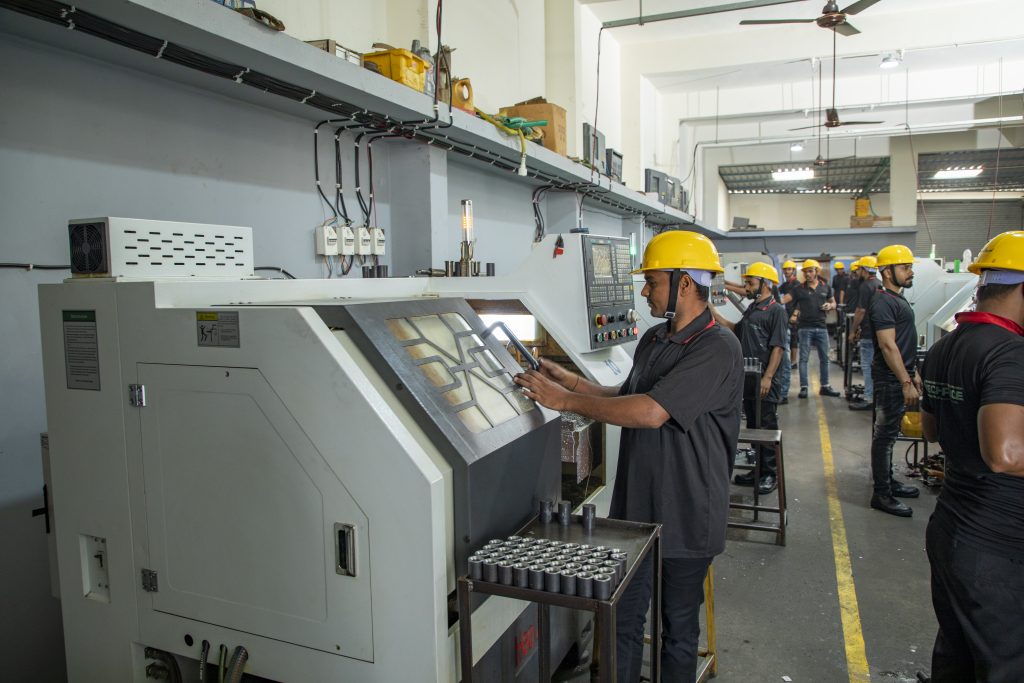
The construction industry has always been at the forefront of embracing new technologies, methods, and materials that offer enhanced structural integrity, ease of application, and financial prudence. One such innovation that has profoundly impacted the sector is the rebar coupler, a mechanical device used to join steel bars or rebars. By choosing the right rebar coupler for your project, you can ensure a sturdy, long-lasting, and resilient structure.
But, with a myriad of choices out there, how do you pick the right one? Here are some essential factors to consider:
Load-bearing Requirements
- Static Loads: For projects that involve structures with static loads (like residential buildings), you might not need the most heavy-duty couplers available. A standard rebar coupler that meets industry requirements may suffice.
- Dynamic Loads: For structures subjected to dynamic loads like bridges, highways, and certain types of commercial buildings, it’s essential to choose couplers that can withstand the constant stress and movement. In such cases, you might want to go for couplers with higher tensile strength.
Type of Construction
- New Construction: For brand new constructions, you have the flexibility to select any type of coupler that suits your needs since there aren’t existing structural elements to match or adhere to.
- Retrofitting or Extensions: If you’re working on extending or retrofitting an existing structure, you might need transitional couplers or ones designed to adapt to varying rebar sizes. The compatibility of the coupler with the older and newer parts of the structure becomes crucial.
Environmental Conditions
- Corrosive Environments: For projects near the coast or those exposed to chemicals, it’s vital to pick couplers made of materials resistant to corrosion. Stainless steel or galvanised couplers might be suitable choices.
- Temperature Fluctuations: In regions with significant temperature variations, it’s crucial to choose couplers that can expand and contract without losing their integrity or compromising the strength of the connection.
- Seismic Activity: If you’re building in an earthquake-prone zone, consider couplers specially designed for seismic resistance. These ensure that the rebar connection remains intact even during tremors, adding an extra layer of safety to your structure.
Ease of Installation
The complexity of installing rebar couplers can vary. Some might need special tools or equipment, while others can be installed more effortlessly. Depending on your project’s timeline, labour skills, and equipment availability, opt for couplers that streamline the installation process without compromising on quality.
Cost Effectiveness
While it’s essential to consider the quality and suitability of a coupler for your project, the cost is undeniably a significant factor. Look for couplers that offer the best balance between cost and performance. Often, investing a bit more upfront can save money in the long run by reducing maintenance or repair costs.
Regulatory and Code Requirements
Different regions and countries may have specific building codes and standards. Ensure that the couplers you choose comply with these regulations. Certification from recognized industry bodies can be a good indicator of a coupler’s reliability and compliance.
Choosing the right rebar coupler is pivotal to the longevity, safety, and reliability of a construction project. By considering factors like load-bearing requirements, type of construction, environmental conditions, and more, you can ensure that your project stands the test of time and elements. Always collaborate with industry experts and manufacturers to get insights and recommendations tailored to your unique project needs.